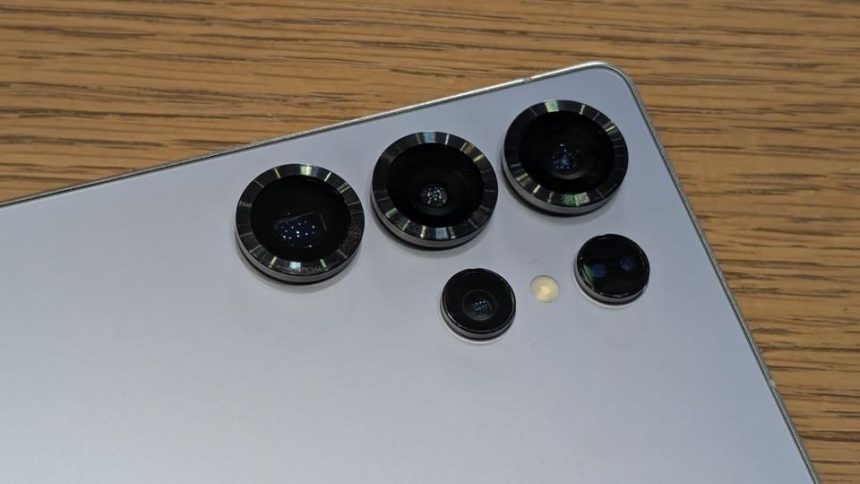Galaxy Unpacked and the State of Smartphone Innovation:
Samsung’s Galaxy Unpacked event unveiled the Galaxy S25 series, along with updates to Galaxy AI and a surprise reveal of the S25 Edge. While Samsung touted the S25 series as setting a "new standard of mobile AI innovation," the online reaction has been somewhat subdued. Industry observers note that smartphones have reached a point of design maturity, making significant year-over-year improvements challenging. Innovations primarily focus on incremental enhancements to existing features like cameras and screens, rather than groundbreaking advancements. Battery life remains a persistent concern for users, but physical constraints limit the potential for dramatic improvements without increasing device size. The S25 Edge, a slimmer version of the standard S25, provides a glimpse into Samsung’s continued exploration of form factors, even within the established smartphone paradigm.
Galaxy AI and Data Privacy:
A significant aspect of the Galaxy S25 series is the enhanced Galaxy AI, which aims to provide a more personalized and intuitive mobile experience. Samsung has addressed concerns about data privacy and the security of user profiles generated by Galaxy AI. The new personal data engine on the S25 devices ensures that user-specific AI learning is securely stored and can be transferred to a new device if the original is lost or replaced. This backup and restore functionality, tied to the user’s Samsung account, allows for a seamless transition between devices without losing the personalized AI experience.
Samsung’s Surprise Edge and Google’s Android Enhancements:
Beyond the core S25 models, Samsung surprised audiences with the S25 Edge, a slimmer variant showcased at Unpacked, but not available for hands-on interaction. This device hints at Samsung’s exploration of alternative form factors within the smartphone category. Concurrent with the Galaxy S25 launch, Google announced Android updates specifically tailored for the new devices. These include enhancements to AI capabilities, Gemini on Android integration, Circle To Search functionality, and improved accessibility features like LE Audio. LE Audio introduces benefits for users with hearing impairments, offering hands-free calling, personalized audio adjustments, and low-latency connection to compatible hearing aids.
Oppo’s Design Constraints and Google’s Future Pixel Roadmap:
Oppo’s upcoming Find N5 foldable phone highlights the challenges of achieving ultra-thin designs. The company has revealed that the physical limitations of the USB-C port pose a barrier to further reducing the device’s thickness. This illustrates the trade-offs manufacturers face when pushing the boundaries of smartphone design. Meanwhile, looking further ahead, details about Google’s Pixel 11, slated for 2026, have emerged. Codenames suggest a bear-themed nomenclature for the Pixel 11 family, including "cubs," "grizzly," "kodiak," and "yogi" for different models. This peek into Google’s long-term product roadmap provides a glimpse into the company’s ongoing commitment to smartphone development.
Xiaomi’s Gaming Ambitions and Qualcomm’s Chipset Strategy:
Xiaomi is developing a new tool that allows users to play Windows games on their tablets. This virtualization-based solution enables local play of titles from platforms like Steam and GOG, expanding the gaming capabilities of Xiaomi’s tablet devices. In the realm of mobile chipsets, Qualcomm has introduced a modified version of the Snapdragon 8 Elite. This variant sacrifices some performance for improved thermal efficiency, making it suitable for foldable devices with their more constrained thermal profiles. While benchmarks show a slight decrease in performance scores compared to the standard 8 Elite, the practical impact on user experience remains to be seen when devices with this chipset become available.
The Ever-Evolving Android Landscape:
The week’s Android news highlights the dynamic nature of the mobile ecosystem. From major flagship launches and AI advancements to design constraints and long-term product plans, the Android world continues to evolve at a rapid pace. The interplay between hardware innovation, software updates, and user expectations drives this constant change, shaping the future of mobile technology. As manufacturers strive to differentiate themselves in a crowded market, features like AI, foldable designs, and gaming capabilities become increasingly important battlegrounds for capturing consumer attention and pushing the boundaries of what smartphones can do.



